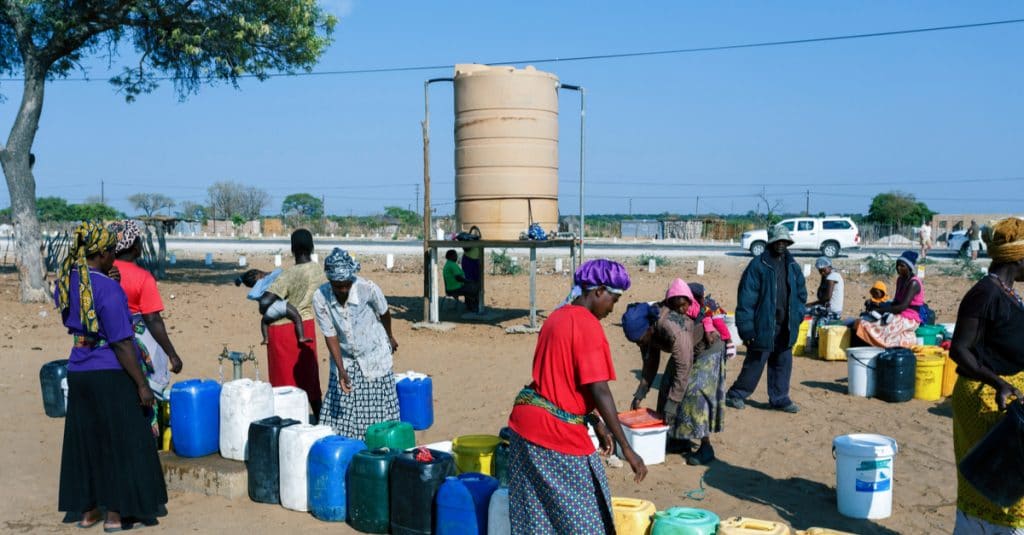“Vision 2035” aims in particular to guarantee access to quality drinking water for all, available 24 hours a day.
The year 2035 is the year from which Malians will be able to enjoy high-quality drinking water, available at all times. In this West African country, where access to drinking water remains a luxury for more than 22% of the population, the two state-owned companies working in the sector want to pool their efforts to improve the quality of service.
The Malian Drinking Water Management Company (Somagep) and the Malian Drinking Water Heritage Company (Somapep) organised a workshop from October 16 to 18, 2019 in Bamako. The work was to validate a strategic plan common to both stakeholders called “Vision 2035”. It aims for excellence in public water service, guaranteeing access to safe drinking water for all at all times, in accordance with World Health Organization (WHO) standards.
For the time being, the price per cubic metre of drinking water in Mali is 0.16 euros (€) or 103 CFA francs. “Vision 2035” aspires to a more affordable rate, which will not weigh on the incomes of the poor. The programme also provides for public companies to achieve a positive economic result and a strong balance sheet to contribute to the national economy and ensure the financial autonomy of Somagep and Somapep.
Vision 2035 is also a performance improvement tool
The strategic plan adopted by Somagep and Somapep is well received by the supervisory authorities. The Malian Minister of Energy and Water based has placed his expecttions on this plan to relieve the Malian people. “This plan will improve performance for better access to water while reducing its cost,” said Sambou Wagué.
With this strategy, Mali will also be able to improve its drinking water supply. Indeed, the statistics published by the government in 2017 on the water and sanitation sector are alarming. They report 1286 villages, or about 5 million Malians, who still do not have access to safe drinking water.
Boris Ngounou
